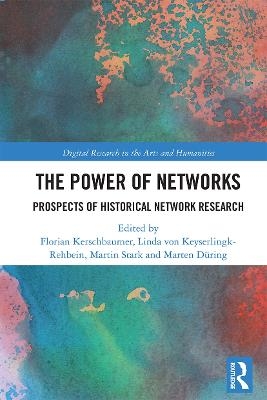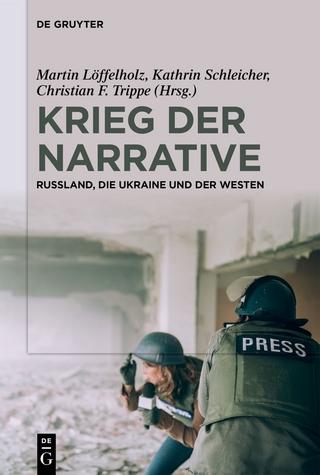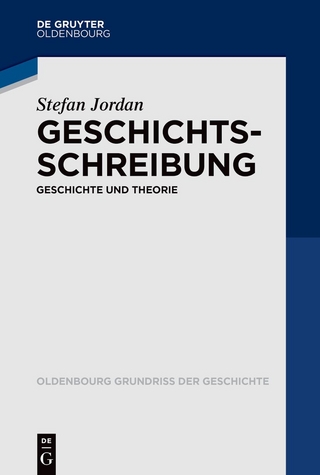
The Power of Networks
Routledge (Verlag)
978-1-032-23667-4 (ISBN)
The Power of Networks describes a typology of network-based research practices in the historical disciplines, ranging from the use of quantitative network analysis in cultural, economic, social or political history or religious studies, to novel approaches in the Digital Humanities.
The Power of Networks describes a typology of network-based research practices in the historical disciplines, ranging from the use of quantitative network analysis in cultural, economic, social or political history or religious studies, to novel approaches in the Digital Humanities.
Network data visualisations and calculations have proven to be useful tools for the analysis of mostly textual sources containing relational information, offering new perspectives on complex historical phenomena. Including case studies from antiquity to contemporary history, the book provides a clear demonstration of the opportunities historical network research (HNR) provides for historical studies. The examples presented within the pages of this volume are arranged in a way to highlight three central typological pillars of HNR: (re-)construction and analysis of historical networks; computational extraction of network data and infrastructures for data collection and exploration.
The Power of Networks outlines the history and current state of research in HNR and points towards future research frontiers in the wake of new digital technologies. As such, the book should be essential reading for academics, students and practitioners with an interest in digital humanities, history, archaeology and religion.
Florian Kerschbaumer is Project Manager at the Danube University Krems and Lecturer at the University of Klagenfurt, Austria. Linda von Keyserlingk-Rehbein is Curator and Head of the Document Department in the Military History Museum, Dresden, Germany. Martin Stark is Senior Researcher at the ILS- Research Institute for Regional and Urban Development, Dortmund, Germany. Marten Düring is Assistant Professor/Senior Research Scientist at the Luxembourg Centre for Contemporary and Digital History (C²DH) at the University of Luxembourg.
1. Introduction
Part I: (Re-)construction of historical networks and their analysis
Networking the Res Publica. Social Network Analysis and the Republican Rome
Community detection and structural balance: network analytical modelling of political structures and actions in the Middle Ages
The Value of Network Analysis in Historical Sociology: Economic and Social Relations in Medieval
in Medieval Lübeck
4. Flemish Merchant Networks in Early Modern Seville. Approaches, Comparisons, and Methodical Considerations
5. Kinship Networks in Northwestern German Rural Society (18th/19th Centuries)
6. Mobility and Movements in Intellectual History: a Social Network Approach
3. Computational extraction of network data from large corpora
Utilizing Historical Network Analysis on Meta-data to Model East German Foreign Intelligence Cycle in the Baltic Sea Region 1975-1989
Social and semantic network analysis in the study of religions
4. Infrastructures for data collection and exploration
Deep Networks as Associative Interfaces to Historical Research
Networks as Gateways. Gleanings from Applications for the Exploration of Historical Data
5. Outlook
Historical Network Research, Digital History, and Digital Humanities
| Erscheinungsdatum | 14.12.2021 |
|---|---|
| Reihe/Serie | Digital Research in the Arts and Humanities |
| Zusatzinfo | 63 Illustrations, black and white |
| Verlagsort | London |
| Sprache | englisch |
| Maße | 156 x 234 mm |
| Gewicht | 517 g |
| Themenwelt | Geisteswissenschaften ► Geschichte ► Geschichtstheorie / Historik |
| Geisteswissenschaften ► Philosophie | |
| Sozialwissenschaften ► Kommunikation / Medien ► Medienwissenschaft | |
| ISBN-10 | 1-032-23667-1 / 1032236671 |
| ISBN-13 | 978-1-032-23667-4 / 9781032236674 |
| Zustand | Neuware |
| Informationen gemäß Produktsicherheitsverordnung (GPSR) | |
| Haben Sie eine Frage zum Produkt? |
aus dem Bereich


